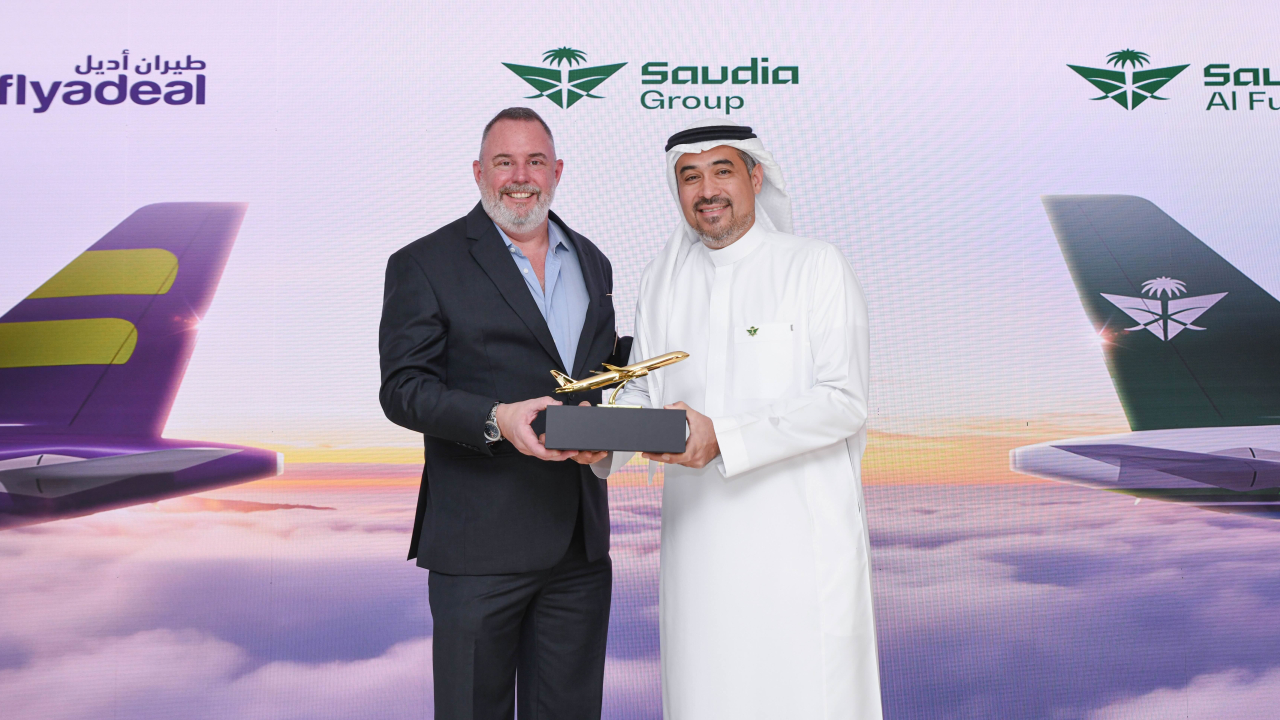The only way is up for Sky
Despite the continuing turbulence, flight support provider Sky Aviation Services says the only way is up for Middle East aviation. Chief executive Ayman Obeissy shares his hopes with Brendan Gallagher.

Amidst the sociable hubbub of a waterside restaurant in Doha’s superb new Pearl marina development, Ayman Obeissy’s message comes across loud and clear. “I see this region continuing to develop rapidly,” said this Syrian-born naturalised US citizen. “There’s absolutely no lack of opportunity here.”
Obeissy seized his own opportunity in 2007, when he set up Sky Aviation Services to provide ground-handling and other support for operators flying within the region and passing through.
Following four years of rapid growth, the company now has 40 employees, headquarters in Sharjah, and offices in Damascus, Doha, Oman and Abu Dhabi’s brand-new Al-Bateen executive airport.
Shuttling among these locations, Obeissy oversees an operation that provides a wide variety of clients – scheduled and non-scheduled airlines, cargo carriers, charter companies and private owners – with all the quick-reaction administrative support they need to enter and cross national airspace, land and refuel, and go about their business at the destination.
“We create and file flight-plans, provide navigational charts, and arrange the supply of over-flight and landing permits and crew visas,” said Obeissy. “Once the aircraft is on the ground, our network of employees and trusted agents and suppliers takes care of ramp and passenger handling and security, and procures fuel at the most competitive prices. We can lay on ground transport and hotel accommodation and see to the subsequent settlement of navigation charges.”
Sky Aviation also charters aircraft for VIPs and business travellers, ambulance flights and cargo operators, and supplies parts, tools and ground equipment for business jets from Bombardier, Dassault, Gulfstream and Raytheon Hawker.
Obeissy said that while modern telecommunications would make it possible for the company to ply its trade almost anywhere, the commercial centre of gravity is still in the UAE states of Sharjah, Abu Dhabi and Dubai.
Developments in Abu Dhabi mean that this part of the region looks set to become an even bigger contributor. At the beginning of the year Sky Aviation opened a four-person office at Al Bateen, the former military field recently transformed at a cost of $50 million into a dedicated business airport.
The Sky Aviation chief’s original home country also has its attractions. “The Syrian market has been opening up steadily for the past ten years and the process continues,” he said. “We’re happy to do business through an office in Damascus, where we secure flight permits and ground services for operators coming into the country. There is a high level of technical expertise in Syria – you can find the kind of qualified people that you need – and costs are lower.”
Obeissy reaches beyond the Gulf and the wider Middle East via a network of partners in Europe, Africa and the Far East, and various levels of representation elsewhere. Senegal is a particular focus. “It’s a good location from which to handle flights in West Africa, and we have another relationship for north and central Africa.”
Though created on the eve of one of the most intractable downturns of recent times, Sky Aviation has known nothing but growth in its short history, according to Obeissy: “We had just a handful of customers when we started but since then our clientele has increased steadily – so much so that our current revenues are now 300 per cent higher than in 2007.”
Obeissy expects the company to stay on an upward trajectory for some time.
“We see airports expanding, we see new airports opening, we see new FBOs, we see the CAAs raising their game to meet international standards and make it easier to work with them than ever before,” he declared. “I think the future is bright for aviation in this part of the world.”
Stay up to date
Subscribe to the free Times Aerospace newsletter and receive the latest content every week. We'll never share your email address.

